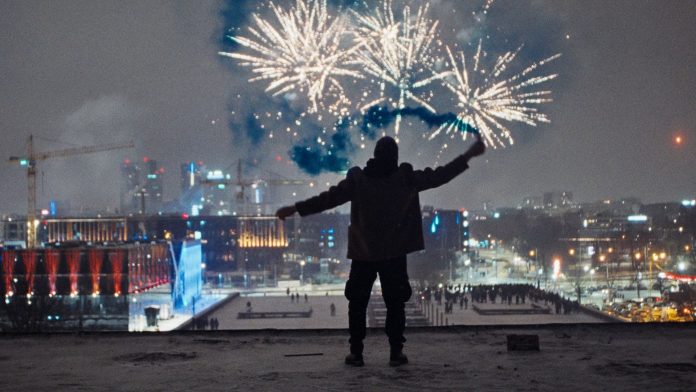At the Tallinn Black Nights Film Festival (PÖFF), two Baltic films reveal the unscripted moments — literal and emotional — that shape people’s lives. In the improvised Mo Papa, serendipity becomes part of the storytelling, while Hunger Strike Breakfast uses the absurdity of history to uncover unexpected truths. More below.
Mo Papa
Mo Papa (2025) follows 28 year old Eugen who has just been released from a decade in prison after accidentally killing his younger brother and he must now reconcile with the world he left behind. He finds solace in reconnecting with his watchmaker father and childhood friends, whilst trying to avoid the troublesome life that led to the terrible accident.
Estonian Director Eeva Mägi believes that films do not need big budgets or polished scripts, rather “only the unbreakable spirit of those who dare to create“. She convincingly conveys a complex backstory via newspaper headlines that Eugen re-reads as he torments himself with reliving the past.
Jarmo Reha, who plays Eugen, provides a compelling portrait of the troubled young man and brings an undeniably likeable energy to a killer who makes us forgive his crimes long before his character can. Ester Kuntu, who plays his old friend Stina, is similarly charismatic and watching the pair interact brings a sense of undeniable light into what could otherwise be a bleak film setting.
The film is unscripted and there is a moment where a spider appears on Reha’s sleeve mid sentence and he responds by talking to it. It is a lovely moment of serendipity and I can see why Mägi included it. However it was the only time I felt like I was watching acting. I saw Reha instinctively react to a stimulus; Kuntu immediately goes along. I admired their craft, whereas for the entire rest of the film I was fully immersed in their characters, which was far more satisfying.
An improvised feature is not an easy thing to successfully deliver, and on the whole the strength of the performances and direction make Mo Papa a compelling example of the daring spirit that leads to something special.
Hunger Strike Breakfast
In the early ‘90s, Soviet troops occupy the Vilnius TV station. The station’s star anchor, radio presenter and director resist outside in a caravan, barricading the flimsy walls and undertaking a hunger strike in protest. The neighbours, at first indifferent to the movement, slowly recognise the faces and voices that had been broadcast into their homes over the years and gradually open their homes and hearts to them.
At face value I would say that the scenario is unbelievable, but there’s not much that would surprise me to learn from that turbulent, troublesome and sometimes bizarre period of history leading to the dissolution of the Soviet Union. Director Karolis Kaupinis captures this feeling and leans into the sense of the absurd, bringing with the passage of time a comedic eye to traumatic events.
The film is not without a sense of dread however, such as when hungry soldiers cross the picket line to offer vodka in a strange offer of friendship, only to then menace and steal food.
Ineta Stasiulyte does a masterful job of playing the resigned anchor who refers to her job as like any other. She turns up, works, then goes home. She doesn’t even have her own office.
Paulius Pinigis also stands out as Sigis, one of the disinterested neighbours, who at first cares only that Stasiulyte’s bullhorn is waking his sleeping baby, but soon becomes integral to the protest. We learn that he is following his dream of being an actor, but spends his days in a rabbit costume entertaining children. This is in contrast to his father, who had joined the Communist Party in order to secure a good job and resign to a quiet, comfortable life.
Hunger Strike Breakfast (2025) is a Lithuanian, Latvian and Czech co-production and the combined resources are evident in a convincing period look and high production values. It is an entertaining historical film that satisfyingly captures the absurdity of the time.
The Black Nights Film Festival
The Tallinn Black Nights Film Festival (Pimedate Ööde Filmifestival, PÖFF) first took place in 1996 and has become one of the biggest film festivals in Northern Europe. It aims to bring a comprehensive selection of world cinema to Estonia and the program consists of local and international features, short films, children’s films, documentaries and animation. PÖFF is a great place to see new films and find out what films to keep an eye out for.
PÖFF is running until 23 November 2025 in Tallinn with select screenings in Tartu.



